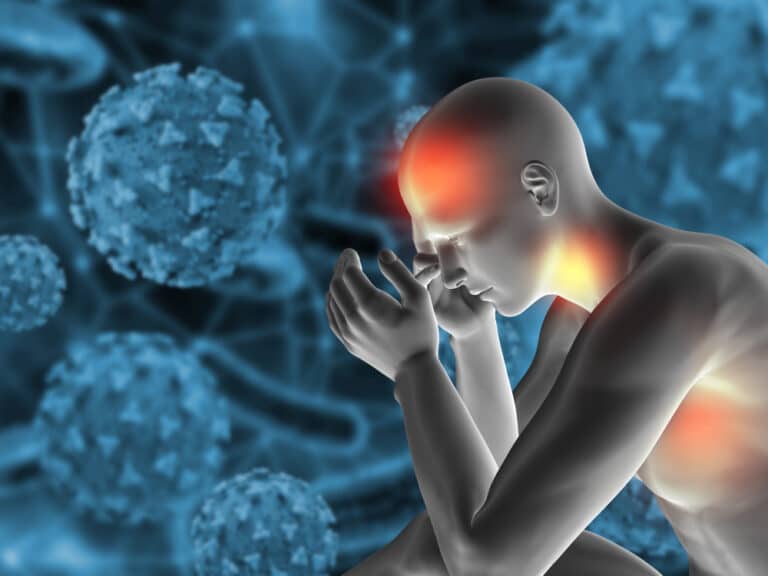4 min read

Imagine you’re watching someone you love slowly change—forgetting things they used to remember, acting in ways that feel out of character, or stumbling when they walk. You might think it’s stress, or aging… but deep down, something doesn’t feel right. Could it be something more?
In this article, we’re going to walk with you through a journey many families face—recognizing the first signs of Huntington’s disease. If you’ve been searching for answers, feeling confused or even scared, you’re not alone. Let’s explore this together—with clarity, honesty, and heart.
Understanding Huntington’s Disease
What is Huntington’s disease?
Let’s start from the beginning: What is Huntington’s disease, really?
Huntington’s disease (often called HD) is a rare, inherited disorder that gradually breaks down nerve cells in the brain. That might sound very clinical—but what it means in everyday life is heartbreaking: it affects how a person thinks, moves, and feels.
It usually starts showing up between the ages of 30 and 50, but symptoms can appear earlier or later. And here’s the hardest part: it’s progressive. That means the symptoms get worse over time.
Causes and genetic origins
Here’s something important to understand—Huntington’s isn’t something you catch; it’s something you inherit. It’s caused by a faulty gene that’s passed down from a parent. If one parent has it, each child has a 50% chance of inheriting the gene.
Think of it like a light switch in the brain that slowly starts to malfunction. The gene produces a toxic protein that gradually damages certain brain cells. That damage leads to the changes in movement, behavior, and thinking we’ll talk about shortly.
Why early detection matters
You might be wondering: “If there’s no cure, why would I want to know early?”
Because early detection opens doors—to support, planning, and treatment that can improve quality of life. Knowing the signs means you can act sooner, and that action can make all the difference.
First signs of huntington’s disease
Sometimes, Huntington’s doesn’t show up first as a physical problem. Instead, it hides behind behavior and emotions. And those can be easy to miss—or misunderstand.
Memory problems and difficulty concentrating
Have you noticed a loved one forgetting things they normally wouldn’t? Maybe they start a task and don’t finish, or seem easily distracted. These might sound like small things—but they can be early cognitive signs of Huntington’s disease.
Many people describe it as a kind of mental fog. They can still speak, still think, but it’s like their brain takes longer to process everything.
Mood changes: depression, anxiety, irritability
Let’s get real for a second. We all get sad, anxious, or moody sometimes. But if your loved one is showing sudden or severe mood swings—going from calm to angry in a heartbeat, or slipping into a depression that doesn’t lift—it could be more than just a rough patch.
In Huntington’s, depression and anxiety are often among the first symptoms. You might hear them say things like “I just don’t feel like myself anymore,” or notice them pulling away from friends and family.
And here’s something crucial: these emotional changes aren’t a choice—they’re biological. The brain is being affected, and emotions are one of the first areas to show it.
Personality changes and impulsivity
Has your usually calm partner become reckless or short-tempered? Do they say things that seem totally out of character?
This kind of personality shift can be one of the earliest red flags. People may become more impulsive—doing things without thinking—or more irritable and argumentative.
It can be confusing. Hurtful, even. But recognizing these signs for what they are—a disease, not a personal failing—can help you respond with compassion instead of frustration.

First Motor Symptoms of huntington’s disease
Now let’s talk about the physical side. Not all early signs are emotional or mental. For many, the body starts speaking up before the person even realizes what’s happening.
Chorea and involuntary movements
This word—chorea—might sound unfamiliar, but if you’ve ever seen someone with sudden, jerky movements they can’t control, that’s what we’re talking about.
These movements are usually small at first: a twitch of the fingers, a sudden head turn, a shoulder jerk. Over time, they become more noticeable. They’re involuntary, and the person isn’t doing them on purpose.
It’s one of the hallmark signs of Huntington’s. And it’s not just about awkward movement—it affects confidence, independence, and even safety.
Clumsiness and balance issues
We all trip over things once in a while, right? But when someone starts losing their balance more often, or seems unusually clumsy, it’s worth paying attention.
You might notice them bumping into furniture, dropping objects, or having trouble with tasks that require fine motor skills—like buttoning a shirt or using utensils.
It’s like their body isn’t quite syncing up with their brain anymore.
Difficulty with daily activities: walking, talking, swallowing
As the disease progresses—even in the early stages—people may struggle with things they used to do effortlessly: walking smoothly, speaking clearly, or swallowing food.
These symptoms can feel scary. But again, they’re signals, not just inconveniences. They’re your brain’s way of saying, “Something isn’t working right here.”
How Huntington’s Progresses Over Time
From early to mid-stage symptoms
Early symptoms often start subtly. But over time, they intensify. Movements become more exaggerated. Thinking becomes more confused. Emotions swing more wildly.
What begins as “little things” can eventually affect every part of life—work, relationships, independence.
Mental health and emotional impact
Living with Huntington’s isn’t just a physical battle—it’s an emotional one, too. Depression, anxiety, and even suicidal thoughts can become overwhelming.
Imagine knowing your body and mind are changing—and being powerless to stop it. That’s why mental health support is just as critical as medical treatment.
Cognitive decline and decision-making challenges
Over time, people with HD may struggle to make decisions, follow conversations, or understand what’s happening around them.
It’s not about intelligence—it’s about brain function. Planning, organizing, and problem-solving become real challenges, which can impact everything from managing money to remembering appointments.
Diagnosis of huntington’s disease and the Role of Neurological Testing
Neurological exams and motor skills evaluation
If you’re seeing any of these signs, you might be wondering: “How can I know for sure?”
A good place to start is a neurological evaluation. Doctors check things like reflexes, balance, coordination, and strength. These tests can reveal subtle signs of Huntington’s, even before full-blown symptoms appear.
The importance of genetic testing
Since HD is genetic, a simple blood test can confirm whether someone carries the gene. But it’s not a decision to make lightly.
Genetic counseling is often recommended before testing, to help individuals and families prepare emotionally for the results—whatever they may be.
Family history and risk factors
If Huntington’s runs in your family, you have every reason to stay informed and proactive. Not everyone who inherits the gene shows symptoms right away—but knowing your risk can help you take control of your future.
When to Seek Help
Recognizing early warning signs in daily life
You don’t need to wait for a crisis. If you’ve been nodding your head while reading—recognizing some of these symptoms—it’s time to take that next step.
Ask yourself:
- Is my loved one acting “not like themselves”?
- Have they had recent trouble focusing or remembering?
- Do they seem unusually clumsy or twitchy?
These are not just quirks—they could be clues.
How to talk to a doctor about symptoms
Starting the conversation with a doctor can feel intimidating. But here’s a simple approach: describe what you’ve seen, when it started, and how it’s changed.
Don’t worry about using medical terms. Just speak from the heart. Honest observation is one of the most powerful tools in early diagnosis.
Available testing options in Miami
If you’re in the Miami area and need help, Neurology Mobile offers specialized neurological evaluations right where you are. Our team can help identify the early signs of Huntington’s disease and guide you through the next steps—with empathy, expertise, and care.
Acting Early Makes a Difference
Let’s go back to that image we started with—the person you love slowly changing.
It’s scary. It’s confusing. But it’s not something you have to face alone.
The earlier you notice the signs, the sooner you can take action. And every moment matters.
Whether it’s seeking a diagnosis, exploring treatment options, or just understanding what’s happening, you’re already doing the most important thing: paying attention.
So if something doesn’t feel right—trust your instincts. Ask the questions. Seek help. And remember: knowledge is power, and support is closer than you think.
Frequently Asked Questions About the Early Signs of Huntington’s Disease
1. Can Huntington’s disease be detected before symptoms appear?
Yes, it can. Genetic testing is available for individuals with a family history of Huntington’s disease, even before any symptoms begin. This test looks for the specific gene mutation responsible for the disease. While it can confirm whether someone has inherited the gene, it does not predict exactly when symptoms will appear. Because this information can be emotionally overwhelming, most doctors recommend genetic counseling before and after testing to help individuals understand and process the results.
2. Are mood swings and irritability really early signs of Huntington’s disease?
Absolutely. In fact, behavioral and emotional changes like mood swings, depression, anxiety, and increased irritability are often among the first noticeable symptoms—even before motor issues like jerky movements appear. These changes are caused by disruptions in the brain’s normal functions and shouldn’t be dismissed as mere stress or personality shifts. If emotional changes are sudden, severe, or uncharacteristic, it’s worth discussing them with a healthcare provider.
3. How is Huntington’s disease different from other movement disorders?
While some symptoms—like involuntary movements or balance issues—can resemble those seen in Parkinson’s disease or ALS, Huntington’s is unique in combining motor, cognitive, and behavioral symptoms. It’s also inherited through a specific genetic mutation, which distinguishes it from most other neurological disorders. A neurologist can perform specialized tests to differentiate HD from other conditions and provide a more accurate diagnosis.
4. What should I do if I think a loved one is showing early signs of Huntington’s disease?
The first step is to observe and document the changes you’re noticing—whether in memory, mood, movement, or personality. Then, schedule an appointment with a neurologist experienced in neurodegenerative diseases. Early evaluation, including neurological exams and possible genetic testing, can help determine if Huntington’s disease is the cause. In Miami, Neurology Mobile offers convenient at-home evaluations to guide families through this process with care and expertise.
5. Is there any treatment available for early symptoms of Huntington’s disease?
While there’s no cure yet, there are treatments that can help manage early symptoms and improve quality of life. Medications can reduce chorea (involuntary movements), and antidepressants or antipsychotics may help with mood and behavior issues. Occupational and physical therapy can also support mobility and coordination. The key is to begin treatment as early as possible, which is why early detection makes such a big difference.
Recognizing the first signs of Huntington’s disease early can mean the difference between confusion and clarity—between fear and action.
Schedule your appointment today and take the first step toward answers and peace of mind.
